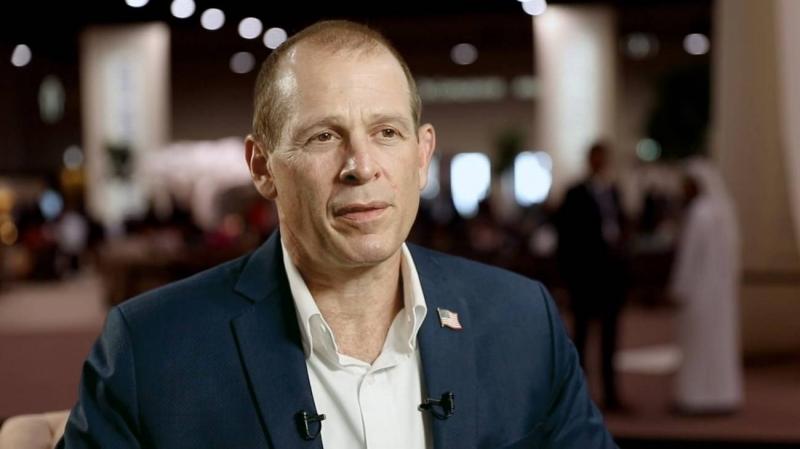In major wars, it is essential to consider the position of the United States. This is the case in Ukraine and, similarly, in the fierce war in the Gaza Strip between Hamas and Israel.
The "Wordna" website spoke with U.S. State Department spokesperson Samuel Rabinovitch, asking when his country would support a comprehensive ceasefire in Gaza. Rabinovitch responded that this decision is not made by the United States but is "left to the Israeli state according to the circumstances it deems appropriate," adding that currently, a full ceasefire could lead to Hamas launching new attacks similar to those on October 7.
He pointed out that his country supports temporary truces and humanitarian pauses as they, in his words, help facilitate the release of hostages and the delivery of humanitarian aid to civilians. He added, "Such decisions are based on accurate assessments of security and humanitarian conditions. The appropriate time comes when there is a consensus that a ceasefire will help reduce tensions and open the door for constructive dialogue that can lead to long-term solutions."
But what about the day after the war? Who governs the strip? The spokesperson stated that Washington sees Gaza's future as a critical stage for building and recovery, focusing on enhancing stability and security for the population in the strip. He emphasized the importance of Palestinians taking the reins of their future with the necessary international support to achieve that. From the U.S. administration's perspective, the responsibility for managing Gaza and the West Bank should be under Palestinian Authority sponsorship.
Rabinovitch's response stands in contrast to Israeli Prime Minister Benjamin Netanyahu's repeated statements about the intention to reoccupy or impose security control over the strip. Samuel Rabinovitch continued by saying, "This approach aims to enhance Palestinian unity and effective governance, contributing to creating a more stable and secure environment for Palestinians. The United States emphasizes the 'need to promote good governance and transparency in Gaza, ensuring the provision of essential services for the population and supporting economic development.' We also view the Palestinian Authority's participation in managing Gaza as a fundamental step toward achieving peace and stability in the region. The United States supports efforts to improve the humanitarian and economic conditions in Gaza while working to find lasting solutions that guarantee security and prosperity for all parties. We emphasize the importance of regional and international cooperation in this framework to ensure the success of the reconstruction and development process in Gaza."
The U.S. State Department spokesperson reiterated support for the two-state solution, stating, "We ultimately hope to work towards achieving a two-state solution, which remains the fundamental goal and long-term vision of the United States in the region. We believe that establishing two states, an Israeli state and a Palestinian state, living side by side in peace and security, is the most sustainable way to ensure a prosperous and just future for both parties."
He reiterated his country’s commitment to working with regional and international partners to promote this vision and support efforts to achieve a fair and lasting peace in the region that meets the aspirations of both the Palestinian and Israeli peoples and ensures stability and security for all countries in the region.
When asked about the blockade imposed by Israel on Gaza, which deprives the Palestinian citizens of basic life essentials, he replied, "Our vision for Gaza's future does not include any blockade, but these current conditions are exceptional due to the presence of a terrorist group hiding among civilians and threatening the security of both Palestinians and Israelis and the region at large." He reinforced his response by referencing Secretary of State Antony Blinken's remarks emphasizing that "it is essential to keep Gaza free of terrorism and any other violent attacks."
Rabinovitch confirmed his country's rejection of the displacement of Palestinians from Gaza or its reoccupation: "At the same time, there must be assurance that no terrorist threats emerge from the West Bank. There shall be no forced displacement of Palestinians from Gaza—neither now nor in the future. It is also essential to avoid any attempt at blockade or actual reoccupation of the strip."
We discussed Washington's stance on Israel's repeated targeting of civilians, civilian facilities, and hospitals. In this regard, Rabinovitch affirmed that his country stresses the importance of protecting civilians and critical infrastructure such as hospitals at all times, urging all parties to take all necessary measures to avoid harming civilians and medical facilities. He stressed, "Washington's commitment to international humanitarian law is clear, and it urges all parties to respect this law and apply the principles of distinction and proportionality in military operations." At the same time, he holds Hamas responsible for targeting civilians as it uses civilian areas such as schools, hospitals, and places of worship for military purposes, endangering civilians and constituting a violation of international humanitarian law.
In conclusion, U.S. State Department spokesperson Samuel Rabinovitch stated that protecting civilian lives and safety is a top priority for the United States. Washington expresses its concern over any reports of civilian casualties and calls for thorough and transparent investigations into all incidents leading to civilian casualties and the application of justice in accordance with international law.




